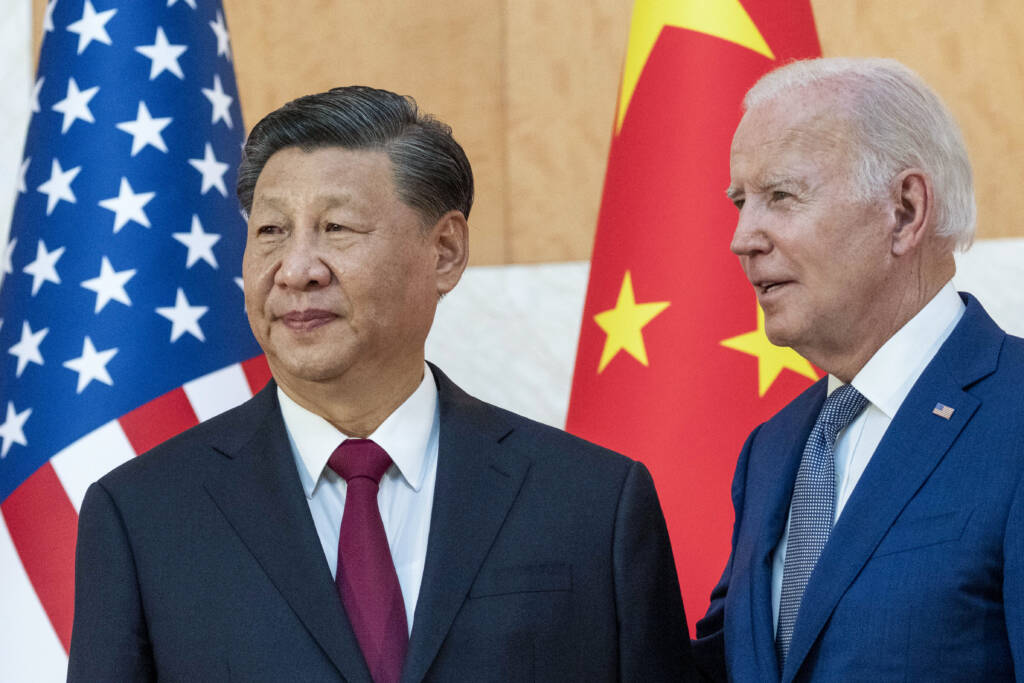When it comes to politics, it’s like watching a sitcom, only less amusing and more cringe-worthy. Just when we thought we’d seen enough of the U.S. acting like an overzealous party planner, showering Ukraine with taxpayer-funded party favors, the Biden administration decided it was time to change the channel and focus on a new reality show—the Indo-Pacific.
Cue Secretary of State Antony Blinken, who’s currently on a diplomatic adventure in China, rubbing elbows with high-ranking officials like Foreign Minister Wang Yi. The conversations are expected to touch on contentious issues. Blinken, ever the concerned friend, reportedly raised issues with China’s trade policies and non-market economic practices. But, as any seasoned comedian would note, expressing concern and exhibiting competent leadership are two entirely different gigs—something President Joe Biden has failed to grasp spectacularly. Since taking office, he’s hobbled the U.S. economy, weakened national sovereignty, and let China rise virtually unchallenged. It’s as if Xi Jinping is the clever protagonist in a plot, and Biden is the comic relief who can’t seem to find his footing.
In the South China Sea, Chinese military vessels have been harassing the Philippines, a U.S. treaty ally. The Philippines, always resourceful, grounded an abandoned warship at the Second Thomas Shoal to assert sovereignty. However, recent re-supply missions have faced resistance from the Chinese coast guard, which uses “grey-zone” tactics like water cannons and ramming, akin to a slapstick routine gone wrong.
Meanwhile, China’s aggression towards Taiwan has increased since Biden took office. In January, Taiwan’s defense ministry reported tracking 1,709 Chinese warplanes entering its air defense identification zone in 2023. While this is slightly lower than the 1,738 reported in 2022, it’s a whopping 76% increase from 2021. The buildup of Chinese forces around Taiwan escalated following a phone call between Biden and Xi earlier this month. It’s almost as if Xi is testing the waters while Biden watches from the sidelines, scratching his head and wondering how things went so wrong.
Following then-House Speaker Nancy Pelosi’s visit to Taiwan in August 2022, China conducted live-fire military exercises in and around the Taiwan Strait. Beijing used the incident as an excuse to alter the status quo, frequently sending military craft across the Strait’s median line, which had served as a buffer zone for decades.
And let’s not even get started on China’s repeated harassment of U.S. military assets in the Indo-Pacific or their challenges to Japan’s control of the Senkaku Islands. All of this makes China’s aggression abroad look like a natural progression, especially considering the chaos Biden has orchestrated at home. But hey, who needs good governance when you have comedy, right?
The Biden administration seems to have discovered a brilliant new strategy for dealing with China: close your eyes, plug your ears, and pretend everything is just fine. In their bid to revolutionize American diplomacy, the Democrats have apparently decided that opposing Beijing’s interference in U.S. affairs is just too “racist.” How progressive! In a move that would make any satirist proud, the Department of Justice halted its CCP anti-espionage program, because they were worried it would appear discriminatory. So thoughtful of them.
Assistant Attorney General for National Security Matthew Olsen even said that by grouping cases under the China Initiative rubric, they risked creating the impression that they were viewing people with ties to China differently. Because, clearly, the real threat to national security isn’t espionage, but hurt feelings.
Meanwhile, as the Biden administration preoccupies itself with optics, Chinese nationals have taken to attempting to drive onto Marine Corps bases in California without authorization. It’s part of a growing trend of Chinese intelligence efforts involving military installations and service members. And let’s not forget the Chinese spy balloon that took a scenic tour of the United States before the administration decided it might be worth shooting down.
It’s not just about foreign espionage—Biden’s open-door immigration policy has also facilitated a national security headache, particularly with the influx of Chinese nationals at the U.S.-Mexico border. So far in FY24, 24,376 Chinese nationals have been encountered at the border, which is even more than the previous fiscal year. Who could have seen that coming?
This relaxed approach to national security has made life difficult for U.S. territories like Guam, where Chinese nationals have been trying to sneak in. Island officials are raising alarm bells, but the Biden administration’s deportation restrictions have their hands tied. It’s almost as if the president is giving a masterclass in how not to run a country.
From botching the U.S. withdrawal from Afghanistan to leaving the southern border wide open, Biden’s policies have become an invitation for global threats to make their moves. It’s as if he’s hosting an international game of “What Could Possibly Go Wrong?” And China, ever the opportunist, sees weakness in Biden, aiming to seize global superpower status by 2049—or sooner, if they get their way.
If Biden’s presidency were a comedy routine, the punchline would be that America—and the world—can’t afford another four years of his disastrous leadership. Now that’s a joke no one finds funny.
